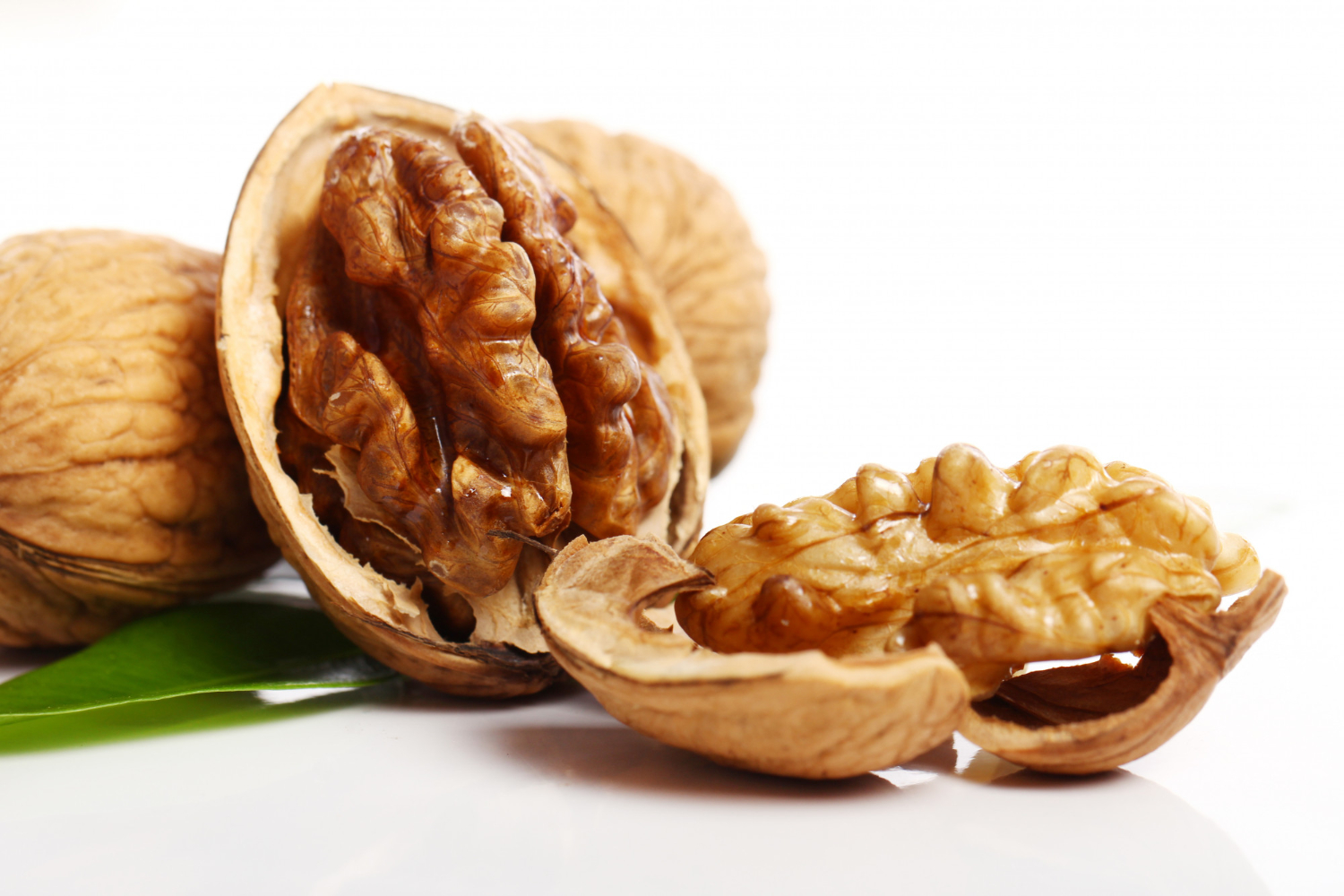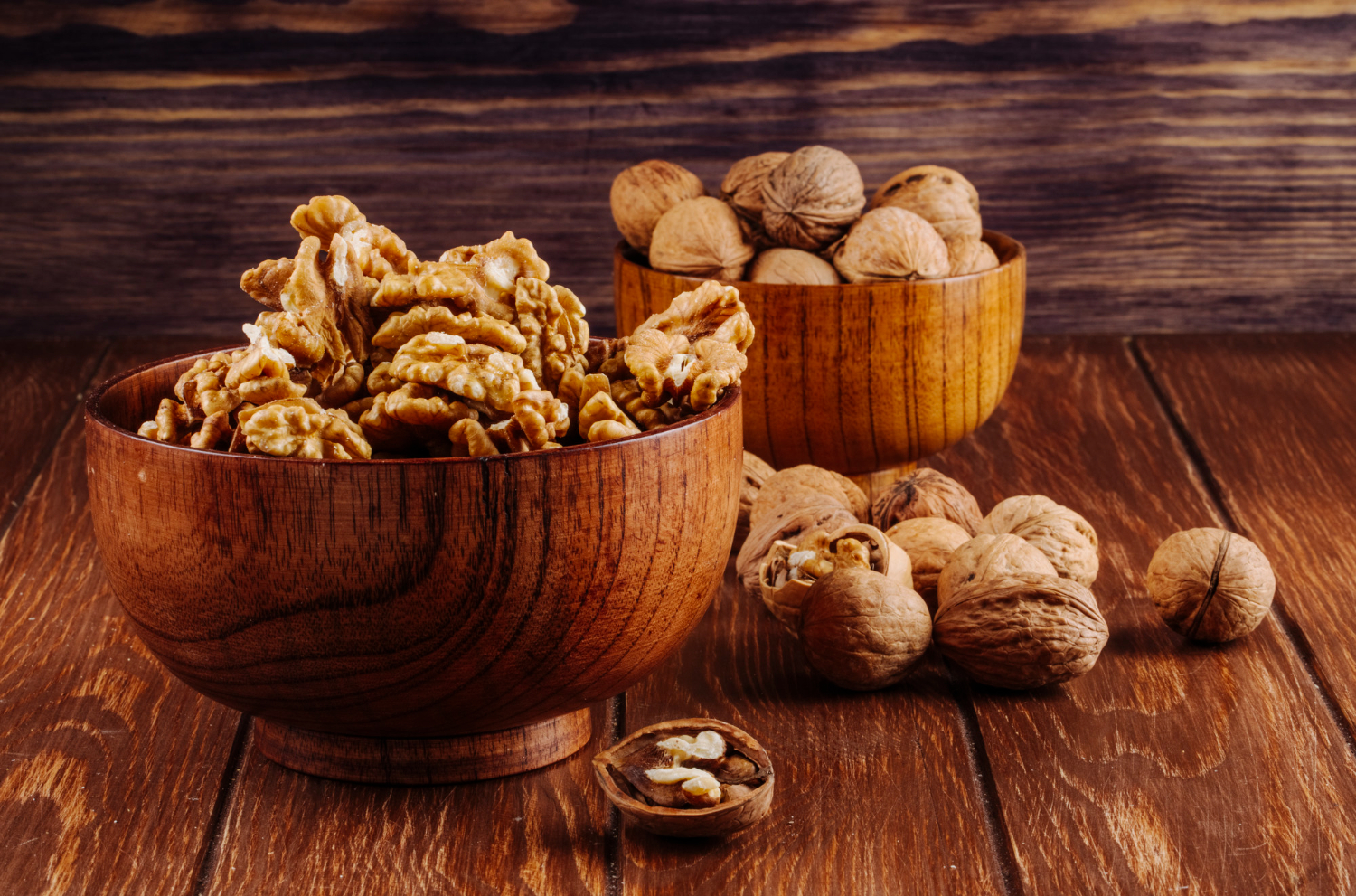Walnut : Nutritional Facts | Health Benefits |
Overview:
Walnuts, the fruit of a tree, come in two basic types: the true walnut and the desert walnut. This tree is native to the Himalayas, from Kashmir to Manipur, and is also found in other regions around the world. It can grow to impressive heights, ranging from 1 foot to 120 feet.
Description:
The leaves of the walnut tree are round and somewhat elongated, resembling the leaves of the Hindii plant. It produces clusters of white flowers that are similar in appearance to madan fruit flowers. After harvesting the fruits, the oil is extracted within three months. Initially, the oil is a milky liquid that eventually solidifies and matures in the months of Chet Baisakh. During this period, the flowers of the tree bloom and the fruits ripen.

Nutrition facts:
Walnuts are rich in essential nutrients, making them a valuable addition to any diet. Here are some key nutritional components for 1 ounce (28 grams) of walnuts:
Calories: 185
Protein: 4.3 grams
Fat: 18.5 grams (of which 13 grams are polyunsaturated fats)
Carbohydrates: 3.9 grams
Fiber: 1.9 grams
Sugars: 0.7 grams
Omega-3 fatty acids: 2.5 grams
Vitamin E: 0.2 mg
Magnesium: 45 mg
Phosphorus: 98 mg

Health benefits:
Brain Health: Walnuts are known to improve cognitive function due to their high content of omega-3 fatty acids.
Heart Health: Polyunsaturated fats and antioxidants in walnuts help reduce the risk of cardiovascular disease.
Anti-inflammatory: Antioxidants and polyphenols in walnuts have strong anti-inflammatory properties.
Digestive Health: Walnuts help digestion and prevent constipation thanks to their fiber content.
Antioxidant properties: They are rich in antioxidants that help fight oxidative stress and reduce inflammation.
Traditional uses and benefits:
Muscle relaxation: Application of a mixture of walnut leaves, sadyab and honey helps with muscle tension.
Digestive Aid: Consuming roasted walnuts can relieve coughs and indigestion.
Mental Clarity: Drinking water infused with walnuts for five days can clear your head and improve cognitive function.
Wound Healing: Walnut leaves can be used topically to heal mouth ulcers and other minor injuries.
Detoxification: Walnuts have natural detoxifying properties and can act as an antidote to some toxins.

Daily dose:
General Health: For general health benefits, consumption of about 1 ounce (28 grams) or 7-10 walnuts per day is recommended.
Specific Conditions: Consuming up to 2 ounces (56 grams) of walnuts per day is beneficial for improving cognitive function and heart health.
Caution :While walnuts are generally safe, excessive consumption can lead to gastrointestinal distress due to their high fiber content.
Conclusion:
Walnuts are a nutritious and versatile food that provides a number of health benefits. Including them in your daily diet can support brain health, cardiovascular health and overall well-being. Enjoy them as a snack, in salads or as a topping in various dishes to fully benefit from their benefits.
Recommended Blogs


Mansab Ali


Mansab Ali


Mansab Ali



